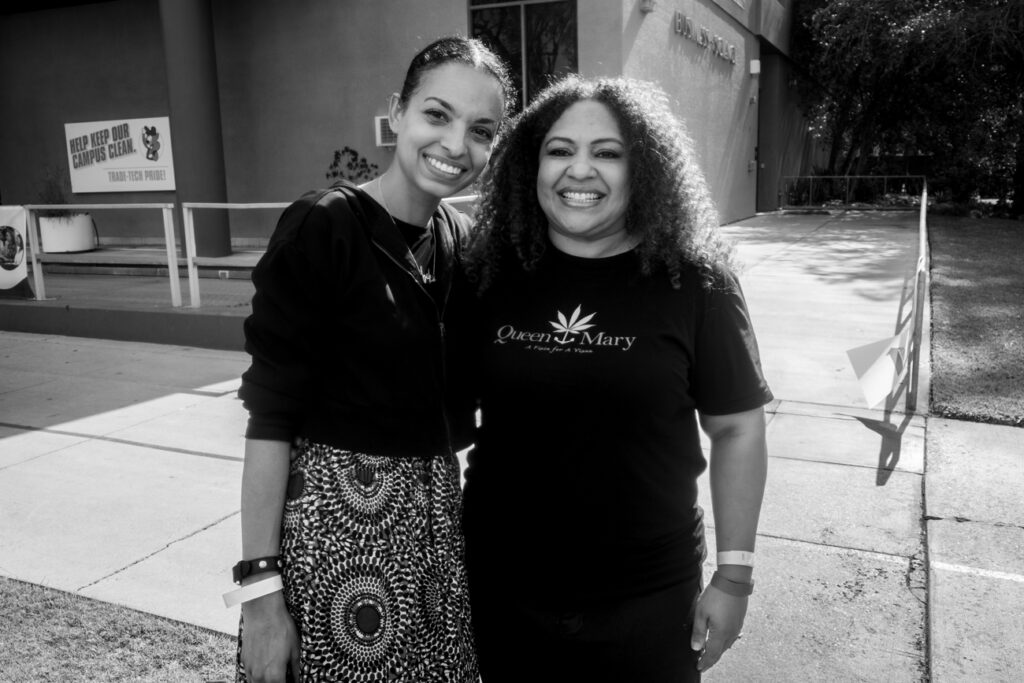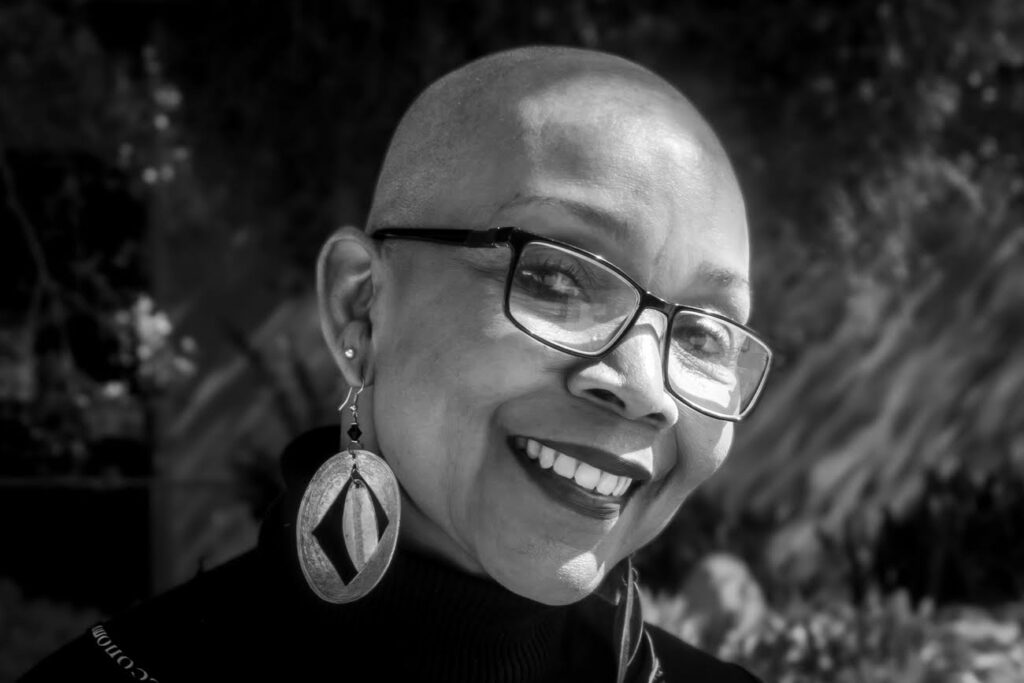For years, the City of Los Angeles’s Cannabis Social Equity Program felt slow and cumbersome to get up and running, leading to delays and financial losses for applicants. But by 2022, the program has grown to be the largest and most robust of its kind in the country.
The culture and industry of cannabis in the world’s largest market is showing signs of a revolution brought on by a new wave of Social Equity entrepreneurs who are determined to reinvest in their communities and to create generational wealth.
Los Angeles’ Social Equity program technically launched in 2018, but was understaffed and underfunded, as was the city’s Department of Cannabis Regulation (DCR) generally.
The program’s goal, according to Social Equity Program Director Dr. Imani Brown, is far-reaching: the program exists to “promote equitable ownership and employment opportunities in this cannabis industry in order to decrease disparities in outcomes for marginalized communities and to address the impact of the failed War on Drugs in those communities.”
Such a mandate, it turns out, takes time, during which many early Social Equity candidates were left struggling, some even losing their investment during the long wait to get a license.
Little by little, funding to the city’s Social Equity Program increased and it has steadily grown into the largest program of its kind in the country. It’s clearly paying dividends as more and more Social Equity businesses get up and running in Los Angeles.
In 2020, 200 social equity licenses were made available to the city. Currently, LA’s retail, delivery, and cultivation licenses are exclusive to Social Equity applicants until Jan 1, 2025. That means that DCR is wholly committed to Social Equity businesses for years to come.
It’s unacceptable for Black and Brown Americans to be overrepresented in incarceration numbers and underrepresented in business ownership.
Dr. Imani Brown
Since 2020, Dr. Brown has helped to bring in more funding and to build out Social Equity services, including those that provide direct grants and business resources to applicants.
To that end, 2021 was a big year for Social Equity in Los Angeles. For one thing, 6 million dollars of direct financial assistance was awarded to 206 Social Equity applicants through the city’s SEED Grant Program.
Another success was the passing of an ordinance that changed the real estate requirements for applicants. One major factor that burdened Social Equity applicants was the need to retain landlord-approved property through the entire application process, which can take years before a business is up and running. Last year, the city passed an ordinance amendment that gives a year between the pre-application stage and temporary approval to secure property, helping to relieve that costly burden for applicants.
The struggle that LA’s Social Equity has had compared to other cities is due to the sheer size and scale of the city, according to Dr. Brown.
“Where other cities may have 20-30 Social Equity applicants, we have 1,600 in LA. We’ve issued 350 licenses to Social Equity applicants, which is more than any other jurisdiction in this country,” Dr. Brown said.
“Our scale is incomparable,” she said.
LA’s Social Equity Program has now fully ramped up its online training and education offerings, called the Business Licensing and Compliance Program. It features dozens of live webinars, career fairs, and hours of educational videos on all topics relevant to running a compliant cannabis business.
“We built a Learning Management System (LMS) that is available to all 1,600 verified social equity applicants. It has over 75 hours of self-paced cannabis learning modules and live webinars, everything a candidate needs to stand up their business and stay compliant,” Dr. Brown said.
The system offers training on a variety of topics that a cannabis business needs to succeed, including learning modules on everything from marketing and branding, inventory management, insurance requirements, business and operation plans, security technologies, management training, commercial leasing negotiation, state and local hiring requirements, and many more.
What is most needed now, Social Equity applicants say, is grant funding for startup capital. Once again, Los Angeles leads in this effort. At the start of this year, Los Angeles was awarded a grant of 5.7 million through the state of California, which is intended to support its Social Equity Program. Dr. Brown says that 80% of this amount will be in the form of direct grant funding to applicants. She expects the money to be available by around May.
Last year, a lot of effort was made in building up and launching the various aspects of the Social Equity Program in the city. Dr. Brown is now looking ahead to 2022 to make more incremental improvements.
This Social Equity Program is one tool to address those irreparable harms in giving our equity applicants a first bite at the legal marketplace. With dedicated training and financial resources, we really do believe we can set them up for success and create generational wealth and reinvestment in our communities
Dr. Imani Brown
“Our goal in 2021 was to launch and reach as many people and as many applicants as quickly as possible,” Dr. Brown said. “This year and next year we’ll be taking the lessons that we’ve learned from those efforts, from our stakeholder feedback and all of our analytics and surveys and we’re going to take a more targeted approach to improving issues affecting our applicants.”
To date, a lot of feedback from Social Equity stakeholders has been received, loud and clear.
“We know that access to capital, finding compliant real estate, and access to legal services are the biggest challenges and barriers that our applicants face,” Dr. Brown said. “We’re going to continue to build out our programs to serve those needs as directly as possible.”
Dr. Brown sees her role as being an advocate for Social Equity cannabis businesses and creating relationships with them beyond just offering funds.
“We want to build lasting partnerships among our stakeholders, and we want to serve as a vehicle for cannabis equity-centered policy and programs,” she said.
Dr. Brown says she doesn’t play favorites but is excited to see the program’s success stories.
“I’m especially proud of two Black women-owned retail businesses who have created beautiful, creative, welcoming spaces to buy cannabis,” Dr. Brown says. She notes that Whitney Beatty and Ebony Andersen with Josephine and Billie’s and Timeka Drew, the founder and CEO of Biko, have been pioneers in their fields. “They’re definitely some superstars to watch,” Dr. Brown said.

The program may have gotten off to a rocky start but has grown and is now paying dividends. It’s already having a clear impact on the industry in Los Angeles.
“When I think about where the Social Equity Program was in 2020, it was a mere ordinance within the LA municipal code with no infrastructure whatsoever,” Dr. Brown said. “When I compare that to where the program is now in 2022, I’m amazed at how robust our programming has become,” she said.
Support the Social Equity Program. Support our efforts and be aware of what’s happening on the state level.
Dr. Imani Brown
Los Angeles’s Social Equity Program was meant to address the fact that communities disproportionately impacted by the War on Drugs—that is, communities that were more severely punished for marijuana related offenses even though they were equally committed by other communities in the city—were not able to compete when the recreational cannabis market was established. The reason they couldn’t compete? Some would argue it was the War on Drugs that depleted the resources of such communities.
Therefore, Dr. Brown says, the Social Equity Program is needed to help give people a chance to participate in the licensed cannabis industry.
“It’s fundamentally about fairness,” Dr. Brown said.
“The failed policies of the War on Drugs disproportionately impacted Black and Brown communities and it caused generational trauma,” she said.
“Although African Americans make up just 6% of California’s population, they account for almost a quarter of those serving jail time for marijuana offenses. And now in our new legal market only 1.2-1.7% of cannabis businesses are owned and operated by African Americans, and less than that are owned and operated by Latinx owners,” Dr. Brown said.
“It’s unacceptable for Black and Brown Americans to be overrepresented in incarceration numbers and underrepresented in business ownership,” Dr. Brown said.
Despite that the program had at one time been roundly critiqued by the Los Angeles industry, Dr. Brown believes in its potential to bring businesses into the fold that otherwise wouldn’t have had a fighting chance.
“This Social Equity Program is one tool to address those irreparable harms in giving our equity applicants a first bite at the legal marketplace. With dedicated training and financial resources, we really do believe we can set them up for success and create generational wealth and reinvestment in our communities,” Dr. Brown said.
I’ve been a cannabis proponent for my entire adult life. I understand the medicinal and the adult uses and benefits of cannabis.
Dr. Imani Brown
Dr. Brown brings extensive experience, having held a series of high-level positions in government administration and through running her own non-profit business. She’s passionate about this work, and about cannabis specifically.
“I’ve been a cannabis proponent for my entire adult life. I understand the medicinal and the adult uses and benefits of cannabis,” Dr. Brown said.
Of the positions she held prior to being the Director of LA’s program, she says the common thread in her career has been working on “equity participation of underserved communities and progressive policy reforms.”
“More than ever there’s still a need for advocates and practitioners to understand that policy and equity-centered reforms are vital, just to level the playing field a little bit,” Dr. Brown said, and she is dedicated to doing that work on behalf of the cannabis community.
As for how Los Angelenos can support this important work, Dr. Brown encourages folks to show their support and to keep up with the evolving legal landscape.
“Support the Social Equity Program. Support our efforts and be aware of what’s happening on the state level,” Dr. Brown said.
Consumers participate when they “intentionally support those efforts and support what we’re trying to do,” Dr. Brown said. To that end, the city is preparing an online tool that tells consumers which cannabis businesses are Social Equity licensees.
“We’re really proud of that, we really want to give these applicants time to stand up their business before Big Pharma and Big Tobacco come in,” Dr. Brown said.


